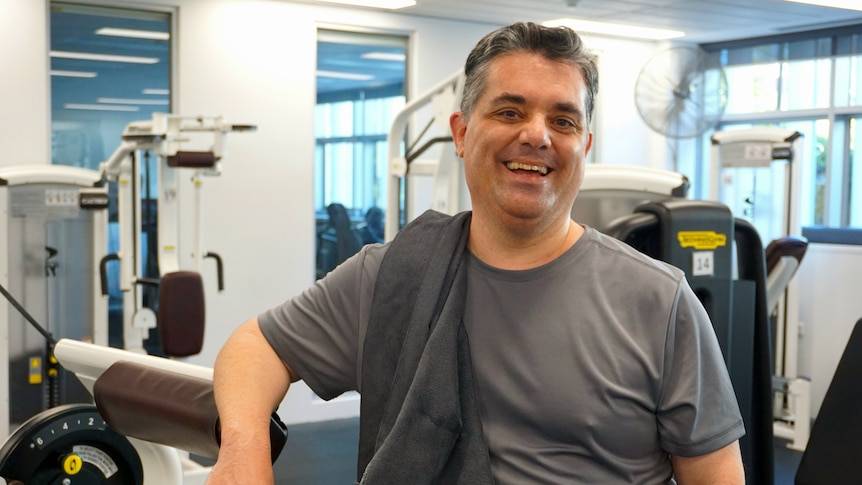Staying fit and healthy is hard enough for most people, but those of us with autism have a host of other hurdles to overcome.
Key points:
- Australian children with disabilities are more likely to be overweight
- People with Disabilities Face Unique Fitness Challenges
- Experts shared their advice on exercise and nutrition
Motor skills issues, including balance and coordination, can all add to the challenges of getting and staying in shape.
According to figures from the Australian Institute of Health and Wellbeing, in 2017-2018, Australian children aged 5-14 with disabilities were more likely to be overweight or obese (30%) than those without disabilities. (24%). .
The first large-scale study in 2020, conducted by King’s College London, showed adults with autism are more likely to be considered ‘unhealthy’ weight – underweight, overweight and obese – than they are in the healthy weight category.
As an autistic person, I continually struggled with my weight and staying motivated to exercise.
Despite the services of many personal trainers, they were ultimately unable to motivate me and I felt frustrated at not seeing results.
Communication is key
My current exercise physiologist, Jake Nimmo, tries to work with me on my coordination and balance, while keeping me motivated during our sessions.
He has already noticed beneficial changes, telling me that my aerobic capacity has improved greatly since I started exercising and my energy levels are much higher.
According to Jake, my strength levels have also increased and my movements are much more efficient.
Good communication with me was key, and I spoke with Jack about the barriers to exercise, as well as my likes and dislikes.
We discuss topics that make me forget the more difficult exercises, and sometimes Jake does these exercises with me.
These strategies help me associate exercise with fun, rather than viewing it as difficult and negative.
Building confidence through exercise
Strong Saturdays, a program in the northern suburbs of Perth, specifically aims to help people with disabilities gain confidence through health and fitness.
Participants work out using outdoor exercise equipment and stairs at a beach-side site.
Roman Wright, who has autism, regularly attends Strong Saturdays to get stronger, healthier and feel more confident.
“When I started I was afraid of stairs and I was afraid of falling. Now I’m more confident,” he said.
Roman said he looked forward to Strong Saturdays as he enjoyed meeting friends, exercising together and sharing a healthy lunch afterwards.
Tailor-made cooking classes
Food aid charity Foodbank knows the importance of food and nutrition to staying healthy, especially for people with disabilities.
Chief Executive Kate O’Hara said the organization hopes to empower people to choose and prepare healthy food.
“People with disabilities are more likely to experience barriers that contribute to poorer health outcomes such as obesity, diabetes, poor oral health compared to people without disabilities,” she said.
“Having a disability makes households more likely to experience food insecurity, and these education and cooking programs address these issues.
“Unfortunately, people with disabilities have fewer opportunities to address health inequities because traditional health education programs and resources are not tailored to their needs.”
Josef Bandera regularly attends Foodbank’s cooking program and raves about it.
“My favorite thing I cooked here was pizza,” he said.
“It taught me how to work with different people and different foods and I became more confident in the kitchen.”
Kate said another participant started volunteering, preparing healthy food for her local soccer team after completing the program.
“Anecdotally, we saw many benefits for our participants, people developed many social connections and made new friends, socializing together outside of program sessions,” she said.
“The impacts of the program have been incredible.”
Key to confidence in the kitchen
Dietitian Themis Chryssidis said the more confident people were in the kitchen, the more likely they were to prepare nutritious meals.
“People with disabilities can face physical challenges in the kitchen, which makes food preparation difficult, however, the disability is not just physical, with intellectual disabilities also being major barriers for some people,” a- he declared.
“Some people with disabilities find certain tasks more difficult than others (but) with extra support in the kitchen, convenient utensils and smart supermarket purchases such as pre-chopped vegetables, people with disabilities can still prepare delicious and nutritious meals.”
Professor Andrew Whitehouse of the Telethon Kids Institute said there were likely many contributing factors to why obesity might be more common in people with autism.
“For example, we think selective diets may play a role as well as certain medications that may have weight gain as a side effect,” he said.
An autistic person on a selective diet will only eat foods they consider safe or acceptable, avoiding foods with a particular taste, texture, or color.
Some may dread the thought of certain foods and can’t bear to touch them or even be near them.
“In a small number of cases, there may be other health and medical conditions that increase the links to obesity,” he said.
As for me, since hiring Jake, I have noticed that my motivation level has increased and I look forward to my workout.
Although I always like to indulge myself with carbonara and garlic bread because no one can be good all the time.

